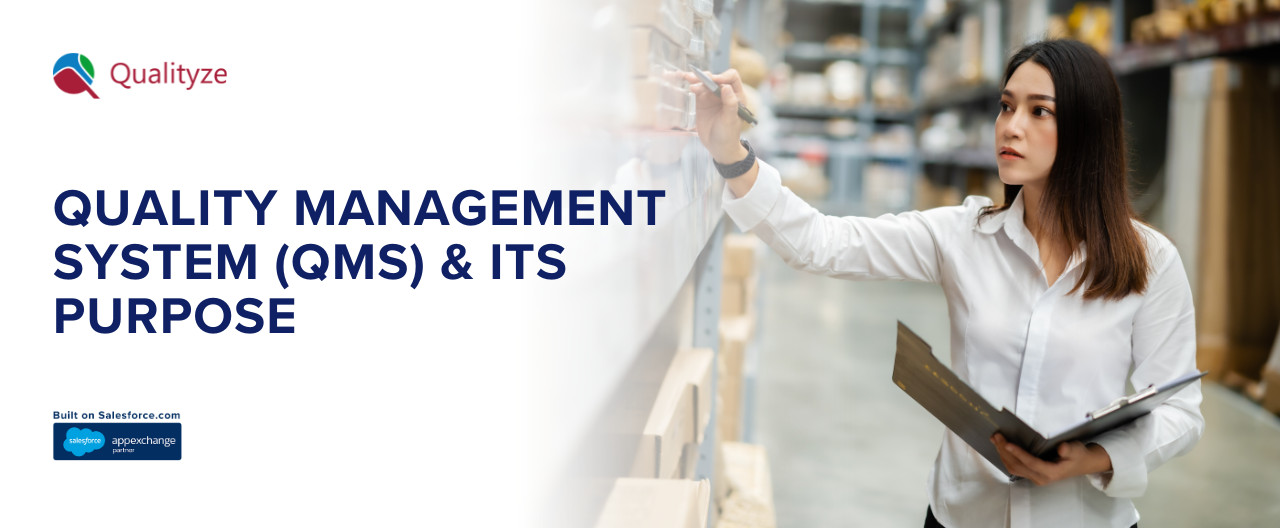


Let’s not sugarcoat it—"Quality Management System (QMS)" sounds like corporate jargon that gets tossed around in meetings without much explanation. But behind that dry name is something that makes a real difference, especially when you’re trying to run a business that people can rely on.
A QMS is essentially a system for the way a company ensures it is doing things the right way, every single time, repeatedly. It defines the processes, roles, and rules to enable customer and regulatory expectations to be met consistently. That may mean delivering a zero-defect product or addressing service issues quickly and effectively.
Whatever a company is producing, whether making sneakers, software, or surgical tools, a QMS puts you on track. It gets everyone aligned, reduces room for error, and makes improvements more manageable. It's not red tape throwing stuff into the mix, it's ambiguity elimination.
The goal? Breathe consistency into what you do so quality is not an aspiration—it's a natural part of all you do. A well-developed QMS not only protects your product, but it also solidifies the confidence of your employees, enhances customer satisfaction, and sets your business up for long-term success. It's not a check list but the building block of dependable operations.
A digital QMS—also called an eQMS is the modern take on traditional quality systems. Rather than having to print procedures, digging around in file cabinets, or attempting to recall where exactly that Excel spreadsheet resides, a digital QMS has everything organized and available online.
Think of it as that one place where documents, training records, audit records, CAPAs (Corrective and Preventive Actions), and workflows exist. With cloud access, your team can obtain what they require whether they are in the office, out at a job site, or remote.
The other giant perk? Automation. A cloud-based QMS can send reminders, monitor approvals, keep a record of version history, and even notify you when something is overdue. You're not wasting time chasing down signatures or trying to figure out what went on last month. You're driving quality in real time, with technology that comes to know your needs.
And because everything's online, it's easier to track trends, track performance, and generate reports without the back-and-forth. And in fast-moving industries, that transparency can be the difference between fixing an issue early on or having to deal with a full-blown crisis.
So why bother implementing a QMS?
At a simple level, it's all about control—having the assurance that the manner your team operates today will produce the same quality tomorrow. But there is more to it than that. A QMS assists businesses in:
The design of a QMS also facilitates expansion. When it's all written down, measurable, and structured, you're not starting from scratch each time you expand.
Many businesses also experience an immediate bottom-line improvement. Using statistics from ISO and ASQ, adopting standards such as ISO 9001 has enabled organizations to save tens of thousands of dollars every year—simply by cutting down on errors, rework, and wasted resources.
Also, a strong QMS fosters trust internally, with customers, and with regulators. It communicates that your company takes quality seriously and is willing to put its money where its mouth is with data, framework, and follow-through.
There isn't a strong QMS overnight. It consists of many moving pieces that reinforce quality in every direction:
These components form a feedback loop that perpetuates ongoing improvement. When executed properly, they make a firm more agile, more efficient, and more adaptive. As time passes, it becomes a competitive strength that's difficult to match.
You’ll find QMS frameworks in just about every industry—but some depend on them more heavily because the risks of poor quality are higher.
Manufacturing – Consistency is paramount. A QMS prevents defects, minimizes waste, and maintains smooth production.
Medical Devices and Healthcare – Quality is directly linked to safety. These sectors are strictly regulated, and standards such as ISO 13485 and FDA CFR Part 820 are mandatory.
Pharmaceuticals – Tight controls are in place to guarantee each batch of drug is safe and effective. Documentation is paramount.
Food and Beverage – From food safety regulations to traceability, quality systems avoid contamination and execute recalls efficiently.
Construction – Meet codes or stay on time – a QMS keeps risk in check and efficiency up.
Software Development – Defects, security vulnerabilities, and downtime are expensive. A QMS streamlines testing and version control to guarantee reliability.
These sectors use QMS for more than just compliance, though—currents of safety, high performance, and reliability demand it. In most instances, a robust QMS can be the differential between success and failure in competitive or high-stakes markets.
Every industry uses a QMS differently, but the gains appear in recognizable forms:
These advantages differentiate throughout the organization—from the factory floor to the executive suite. Better quality translates into fewer customer complaints, less scrap, improved supplier performance, and improved team morale. And when quality gets better, so does your reputation.
Let’s break it down. A paper-based QMS is an old-school method. You’ve got binders, spreadsheets, manual checklists, and someone trying to keep it all together. It works—until it doesn’t.
Paper-Based QMS:
Digital QMS:
A digital QMS also simplifies collaboration. Teams can collaborate in real-time, regardless of where they are based, and decision-makers have instant access to quality information. It turns quality management into a proactive approach rather than a reactive task.
Even with all the benefits, rolling out a QMS is not easy. Here's what usually gets in the way:
It is worth noting as well that inadequate planning can dis-empower adoption. Organizations underestimate the timeframe, cultural change, and intranet communication involved in adopting a QMS long-term success. It is possible to handle these concerns at the beginning with smooth implementation and more efficient long-term outcomes.
Qualityze is one of the solutions assisting businesses in transitioning from old systems to something that actually suits how teams operate today. Its foundation on Salesforce makes it flexible, secure, intelligent and customizable.
It's unique in that everything—CAPA, training, audits, documents, and change management—is brought together into one platform. That means less toggling between tools and easier sight into what's happening across the board.
Features such as electronic signatures, role-based access, and real-time dashboards allow it to be more compliant and focused on the essentials. And since it's in the cloud, your team can access it anywhere.
It also grows with you, which is wonderful for companies who anticipate growth. With Qualityze, businesses can implement what they require now and add to it later without having to rebuild their entire system. It's quality as a part of your normal workflow—not an afterthought.
A Quality Management System isn't a tool, though—it's a mindset. It's how you create customer trust, tame disorder within your team, and continue to grow without sacrificing quality control.
The digital age makes EQMS Suite easier to access, more efficient, and less of a chore. Intelligent Solutions solutions like Qualityze enable you to control quality with less uncertainty and more assurance.
In a world where consistency is more important than ever before, a good QMS isn't just useful—it's critical.
Author

Qualityze Editorial is the unified voice of Qualityze, sharing expert insights on quality excellence, regulatory compliance, and enterprise digitalization. Backed by deep industry expertise, our content empowers life sciences and regulated organizations to navigate complex regulations, optimize quality systems, and achieve operational excellence.
Calculate your potential savings with our ROI Calculator
ROI Calculator